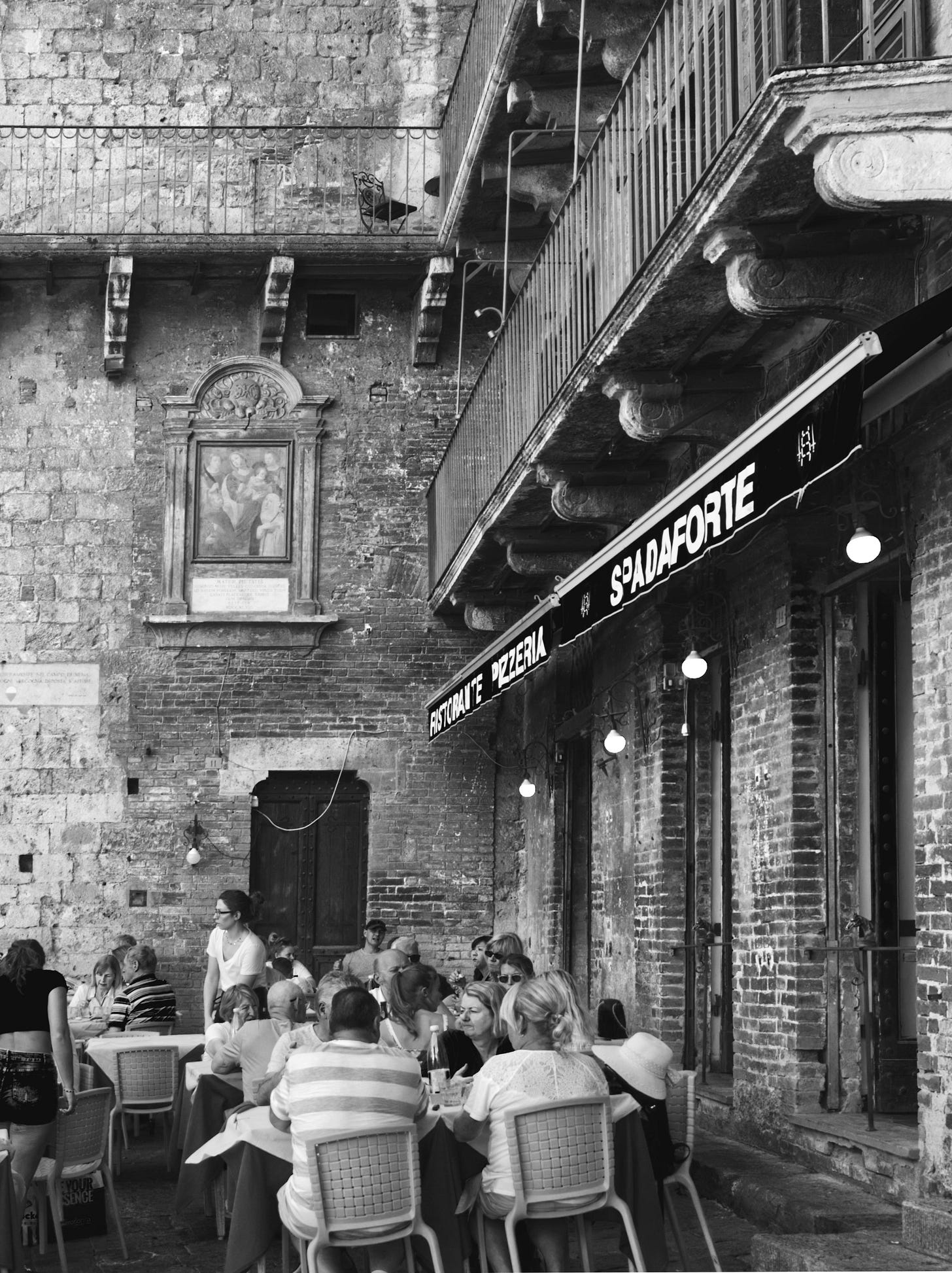For the first dinner of our European vacation, my wife and I found a little restaurant in Rome on a narrow alley not too far from the Trevi Fountain. It was 2016 and we were celebrating both of us finishing grad school. We stayed in grungy hotels and hostels to make more room in our budget for eating well. I stand by the decision to spend more money on food than shelter, but I’m not sure my wife would agree. Anyways, we sat down at the restaurant and our waiter came and got our drink order. He brought our wine and then disappeared. He was gone a long time. He eventually came back and took our food order. This became a pattern; he’d bring the next course and disappear for what felt like eternity. My American brain was slowly imploding with impatience. I was ready to see some sites, but the waiter would not be rushed. The meal took well over two hours.
I later learned that the restaurant was observing the traditional Italian meal structure and boy did it open my eyes to how American culture had conditioned me to rush through my meals (and my life). Dinner for me was about consumption, dinner for Italians is about conversation.
From Collecting Information to Building Relationships
A few years ago, I met with a pastor who felt like I might have some helpful insights to offer him. We met for coffee, and he asked me a series of preplanned questions. Once we got through his last question he said, “Thanks for your time, I have another meeting to get to.” He whisked off to his next meeting before I could say anything. It was the first time that I can remember feeling extracted, like my ministry knowledge had been fracked. As a person who values relationships it felt disorienting and disappointing.
When I teach churches to listen to their neighbors, I encourage wholistic relational listening—listening that helps you understand your neighbors more deeply and listening that leads to healthy, mutualistic relationships. I have other posts that cover the wholistic part, but today I wanted to give my best advice for relational listening: slow down and be present.
Slow Down: This one happens before you spend time with someone. If you want your listening to be relational, carve out more time than you need. If you think your lunch will take an hour, schedule two hours. It might mean you have to schedule less meetings or be a little less productive that day, but that’s ok. Quality over quantity.
Be Present: When you get together with your neighbor, pay attention. Put your phone away. I’ve had some really awkward meetings where someone disappears into their phone for an extended period of time and I’m left sitting there. These meetings left a lasting impression (in a bad way). Try to take care of things that might distract you ahead of time. If you’re worried about being late for something set an alarm. Be 100% present with the person you’re listening to. Don’t treat them as information to be collected, but as a friend to be enjoyed.
Conclusion:
As you set out to listen to your community, be a little more Italian about it, carve out more time than you need, savor the conversation like you would a glass of expensive wine (or coffee), let the conversation wander, and see the person across from you as a person made in the image of God, full of mystery and depth, worthy of your time and attention.




